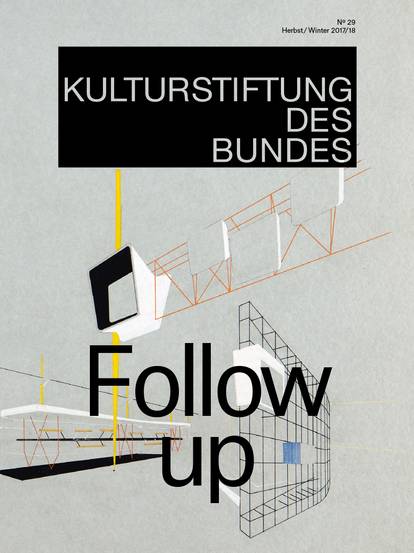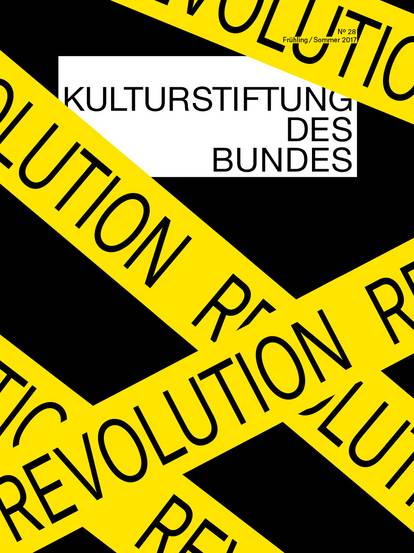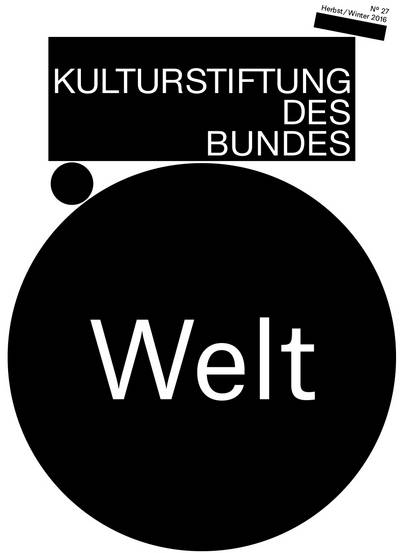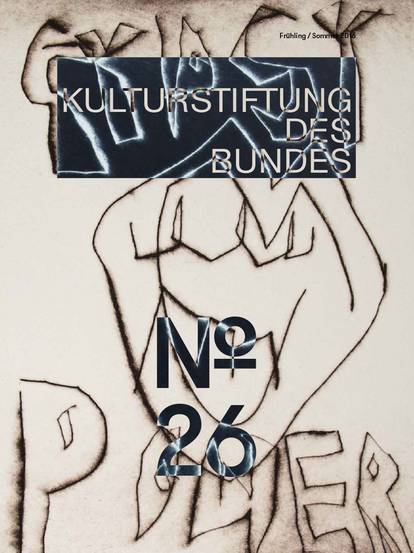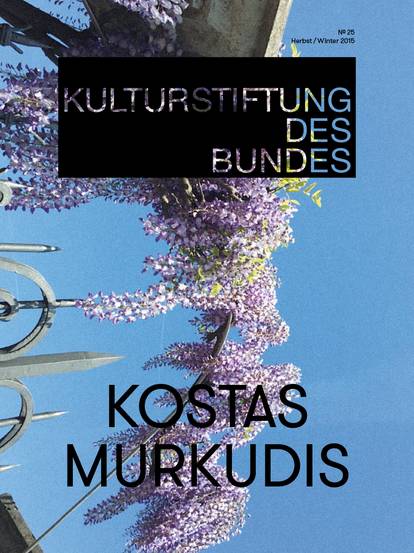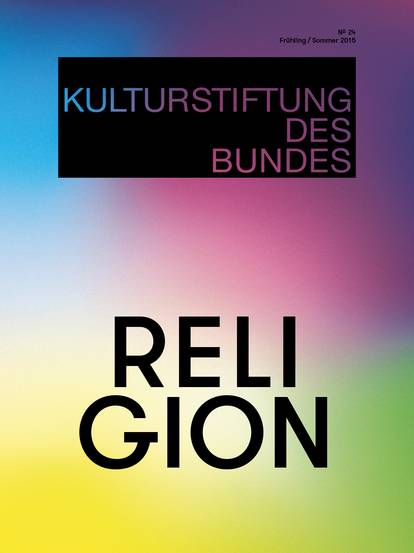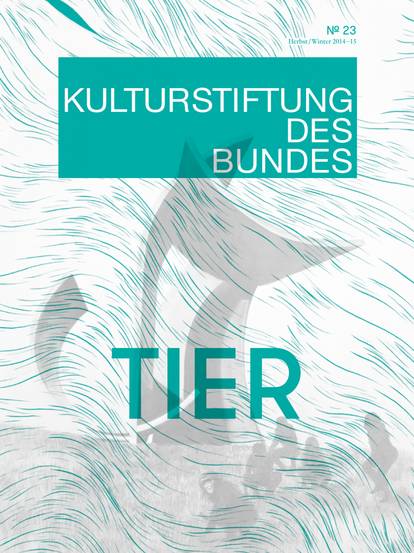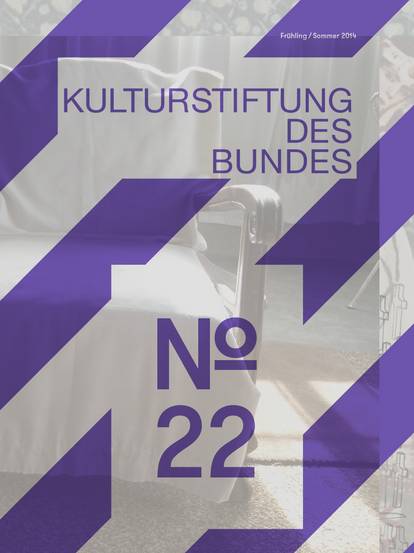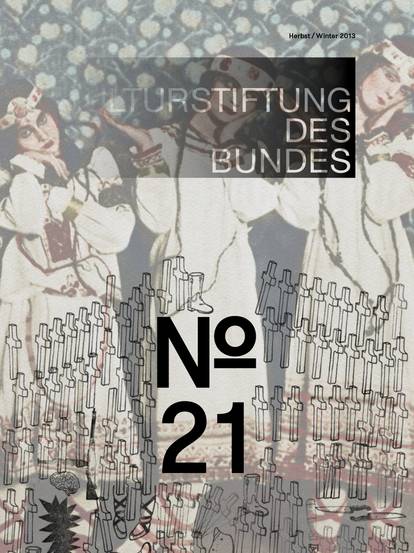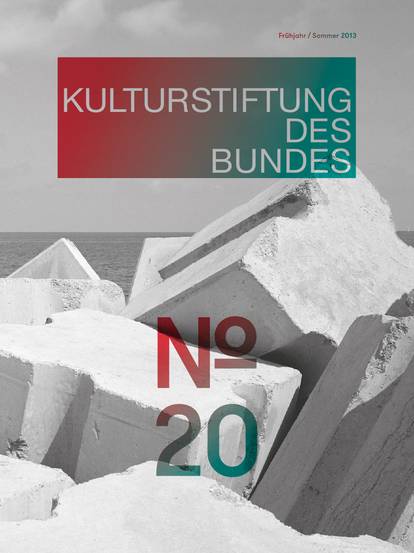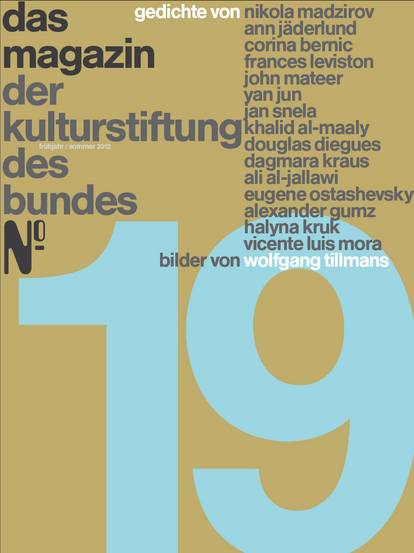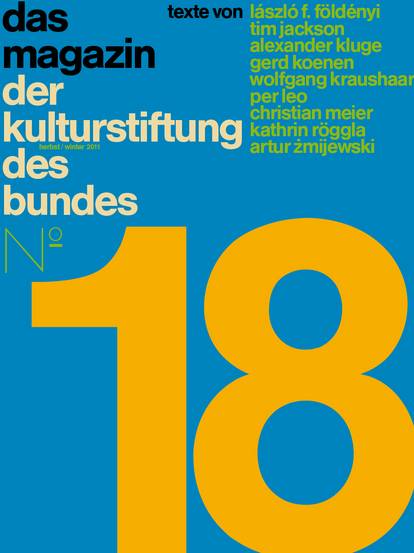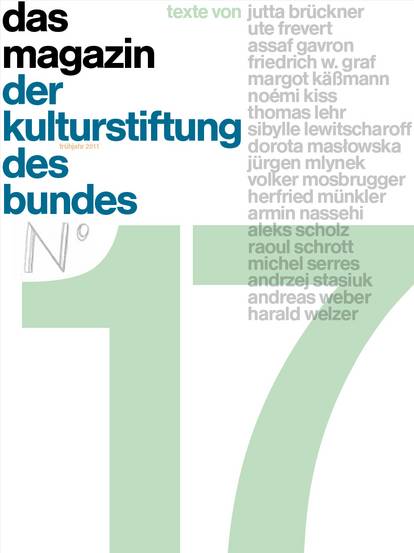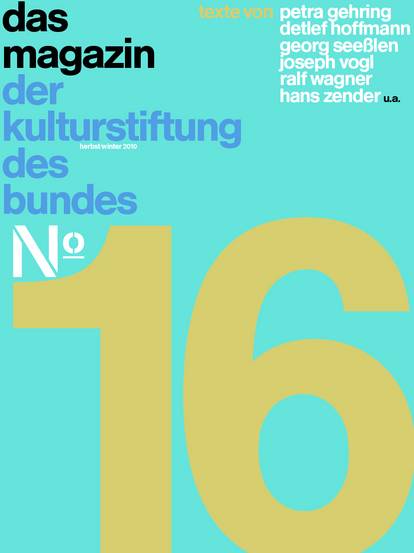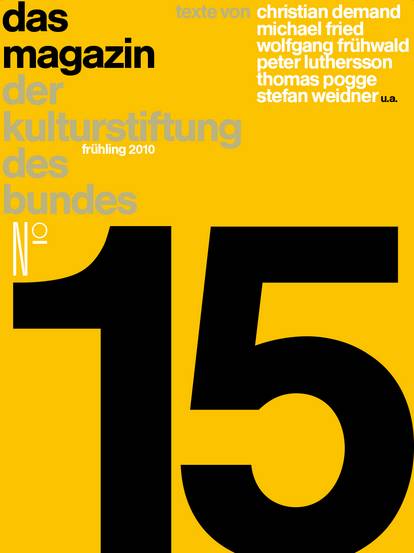An inquiry into pan-African performance methods is the basis of a new production by the German-Ivorian theatre and dance company Gintersdorfer/Klaßen. A TURN project report from Kigali.
Personal note: For the past twenty years, I have attended theatre festivals, dance premieres and art exhibitions in Africa on a regular basis and have reported about them in German-language newspapers. In the meantime, I’ve become well-acquainted with its people, animals, landscapes, cities, cultures and problems, and even now, Africa fascinates me more than ever. The image of Africa in the minds of many German feature editors, however, is embarrassingly antiquated, and I have to fight to convince them of every new article I propose. “Oh, culture in Africa, do they have that?” is a question I’ve heard more than once – also from some very prominent people. For some, Africa is slaughtered men, raped women and emaciated children, seasoned with a bit of drought, civil war and terror. The cynical journalistic credo, “Only bad news is good news” still dominates the perception of Africa among writers and readers today. Of course, there’s plenty of bad news, but there’s also the other side, and very little of that gets reported on here.
And then all of sudden, African culture is taking Europe by storm! But like all fashion trends, the hype will pass, but if just a little bit of it remains behind, arousing more openness and understanding, then it will be worth it.
The German-Ivorian theatre and dance company Gintersdorfer/Klaßen was founded in 2004 and is extremely successful. In most of its productions – from the early “Logobi” series to its most acclaimed piece “Othello, c’est qui?“ to the current TURN project “La nouvelle pensée noire” (“Black Thought Now”), the artist duo examines the truth and appearance of identity, the burgeoning desire to compare, visualise and enlarge one’s ego and its many facets. The Ivorians and Germans form a close-knit team. And although the Germans, who translate and imitate them, are always at a slight disadvantage, this doesn’t detract from their brilliant performance in any way. For this large-scale, three-part project on “Black Thought Now”, Gintersdorfer/Klaßen have enlisted Congolese, Rwandan and Dutch artists for extra support and to act as adversaries. They are focusing on the traditional African “chefferie”, a type of regional council, in which everyone is the boss and no one gets the final say.
“We also regard this group as a kind of chefferie,” says Monika Gintersdorfer. “Each performer is his own boss, he has to be strong, courageous, eloquent, and must bear responsibility for himself and everyone else.” For them, there is no “Fourth Wall”. Instead they make contact with the viewers, the “enchant” them, sometimes intimidate them. Their performance style has nothing to do with the old interactive theatre shtick, but rather takes the risk of establishing true equality on both sides. The unexpected, strangeness and personal radicality are part of the aesthetics of the collective – it might not be comfortable, but it’s almost always exciting.
In November 2013, audiences at the Spielart Festival in Munich enjoyed a preliminary version of the TURN project, and a second, smaller one premiered in Kigali, the capital of Rwanda, in February 2014. Guest performances will take place in May at the German co-producing theaters HAU in Berlin, Kampnagel in Hamburg, FFT in Düsseldorf and the Pumpenhaus in Münster. A third round of performances will be staged in Kinshasa (Democratic Republic of the Congo) and the KVS in Brussels in 2015. The performances will be modified at each venue depending on who participates, how much rehearsal time is available and what issues are particularly relevant at the moment. Which is completely appropriate, especially for theatre artists who are committed to improvisation and spontaneity. This is Brecht’s old dream of quick reaction and constant change, and he’d probably have liked the fact that Africans were now making it come true.
The performance in Munich featured twelve actors from five different countries, which certainly made it the largest and most logistically challenging projects the group had ever undertaken. “La nouvelle pensée noire” – the title itself sounds challenging and seems more appropriate for an international conference than for an international theatre production. But naturally, the piece had nothing to do with abstract discourse, definitions and differentiations, but with very real dancing, thinking and speaking, with vitality, provocation, humour and turbulence. They mould their observations and convictions into a scenic mosaic whose tiles performatively complement each other or clash with one another. Not everything works, but everything is carried out through mutual commitment. Whether they declare each other bosses (“all at the top, no one below”), rip apart the study programme “Critical Whiteness”, reflect on the secret of pan African spirituality or the value of hunger strikes in an affluent society like Germany’s – thoughts are in constant motion, gestures are transformed into words and continually mixed together until they finally contradict each other. Those who dwell below have to be just as quick-witted to catch everything as those at the top.
The work in Kigali begins where it stopped in Munich; some of the parts which were not quite finished at the world premiere are now refined and others are cut. The Congolese, who had always been a link of sorts between the dominant Ivorians and the somewhat reserved Rwandans, couldn’t participate in Kigali (but will return for performances in Kinshasa). As a result, very different personalities collide – and sparks begin to fly. They only have ten days to rehearse, but this time, the rehearsals are taking place in Africa, and that is the decisive factor. Of course, everyone agrees that Rwanda is not Africa. Rwanda is a small, beautiful country, green, clean, safe and well-organised. Even in the capital, there are neither swarming crowds nor traffic jams, and hardly any street vendors or beggars. But there are a lot of well-maintained streets, tended gardens, a certain level of prosperity and a terrible past. The government programme “Vision 2020” aims to transform Kigali into a “Western-style metropolis”. Work is underway to make it a service-providing hub, attractive to investors with a solid infrastructure and gigantic congress centre next to an environmentally friendly luxury hotel, which was designed by the Munich-based architect Roland Dieterle and is currently under construction.
It remains to be seen how this transformation process will turn out. There are plans to demolish and gentrify entire city quarters, and though the home owners are to receive compensation, the tenants aren’t. They’ll just have to return to their villages. Modernisation is taking place at a breath-taking speed, and those who can’t keep up are left in the dust. But remarkable progress has been made in numerous areas – for example, a parliament in which 60 percent of the representatives are women (world record!), or a law banning plastic bags (and lo and behold – life goes on without them), or the concerted effort to improve the chances for girls to receive an education. There are also exemplary efforts to investigate the genocide of the past with memorials throughout the country, which are heart-wrenching and lend resolve to the promise of “Never again!” It is almost unimaginable that a slaughter of this magnitude could have occurred in such a peaceful, quiet and almost poetic countryside.
“We killed three million in just three months”, was a line in one of the macabre scenes in Munich. “You needed four years for six million. We were more efficient – you could learn from us.” The pitch-black humour of “Comedy Knights” enjoys cult status in Kigali. Two members of the cabaret group, Michael Sengazi and Hervé Kimenyi, are participating in “Black Thought Now”. The third member of the team is the actress Sonja Uwimbabazi. Together with the Ivorian Franck Edmond Yao, she developed a delightful scene about “Style in Africa”. So much for pan Africanism – what people praise as “malin” (clever) in Abidjan is dismissed as vulgar in Kigali. Franck dons his cool outfit, brags and struts about. “Are you crazy?” Sonja responds indignantly, stiffening her body, contempt written on her face. She focuses instead on elegant modesty and self-control, he complains “C’est de l’arrogance!”
Such small sketches are rife with clichés, but also quite a bit of truth. These were the strongest moments in the performance in Munich and were enthusiastically received. And for the actress, it was a revelation coming up with the text and scene herself. “I struggled with it in the beginning because I wasn’t used to it,” she says, “but now I’m thinking about ways to integrate this method into my own group. The wonderful thing about improvising is that it enriches you so much. It’s a huge challenge, but if you’re up to it, it can make you so free and happy.”
The rehearsals are held in the lounge of a small hotel which was leased for the group by the Goethe-Institut in Kigali, one of the co-producers of the project. The atmosphere is relaxed, the actors work hard, laugh a lot, discuss and come up with new ideas. The mood is good despite (or perhaps because of?) their very different character. When a new subject is broached, they all start improvising at once. Monika Gintersdorfer and Knut Klaßen filter the suggestions; she evaluates them and he writes them down. As is the usual custom in contemporary dance, the choreography and text are provided by the performers themselves. Monika tweaks the scenes, sharpens the vague moments, structures the scenes. “We are chilly,” Michael replies when the hot-blooded Gotta Depri urges him to be more aggressive on stage. The physical presence and vitality of the Ivorians and the intellectual coolness of the Rwandans stoke their performance into a blaze. It becomes difficult for the German and Dutch performers to assert themselves. But when they all dance together, the auditorium comes to a boil – for example, in “Supernation”. This refers to Rwanda, which meets the three criteria to justify the term: a large, famous building (the genocide prison in Nyanza), an event that shook the world, and a retinue of superstars who attend the commemorations – from George Clooney to (unfortunately) Paris Hilton. And there’s something else you can learn from the super-prison: “The small-time criminals suffer, the big ones are on Facebook.”
Hervé relates the story about a white NGO employee who said to him, “You are so smart – did you study in the US?” and was amazed to find out that he hadn’t. That plays right into Hauke Heumann’s hand in “Critical Whiteness” which sparks a long discussion. Finally they agree that those who avoid making mistakes by filtering their thoughts too much can no longer communicate. So what’s better, being spontaneous and wrong, or correct and uptight? “Or not at all,” suggests one of the Comedy Knights, grinning broadly. This is how the scenes of the piece are developed, although, in this case, there isn’t enough time to convey the problem in movement and music. But the material is so good they will definitely work it in later.
According to Knut Klaßen, “The pieces we do usually lead to future ones in a rather organic way. We don’t plan on it happening. It simply depends on the circumstances – who is available, what the finances looks like, who we want to work with, what kind of expressive methods we come up with together. The rehearsals so far have been simply fantastic because we’ve all been very open-minded, where everything is possible, even the chance that everything explodes and goes down in flames. This [attitude] gives the show a wonderful lightness.” And this lightness is catchy; the premiere is a huge success. It takes place in the auditorium of the Kigalu Serena Hotel. Admission is free and the place is packed. There are more white faces in the audience than black, but they all look thrilled. Remarkable, for despite the lightness and humour, the performance is not easy to digest with its jumble of issues, layers and languages. But that’s exactly what makes it so exciting and legend-making as there are no other performances planned and everyone – which is evident in discussions following the premiere – will remember it differently. In theatre, this is perhaps the best compliment one can receive.

![[Translate to English:] Magazine 38](/fileadmin/_processed_/f/1/csm_Magazin38_Cover-Vorschau_921x1230_689f428dc3.jpg)
![[Translate to English:] Magazine 37](/fileadmin/_processed_/b/c/csm_Mag37_Cover-Vorschau_921x1230_b5129fdb2a.jpg)
![[Translate to English:] Magazine 36](/fileadmin/_processed_/2/a/csm_Cover_Magazin36__issuu_2f3cef97bb.jpg)
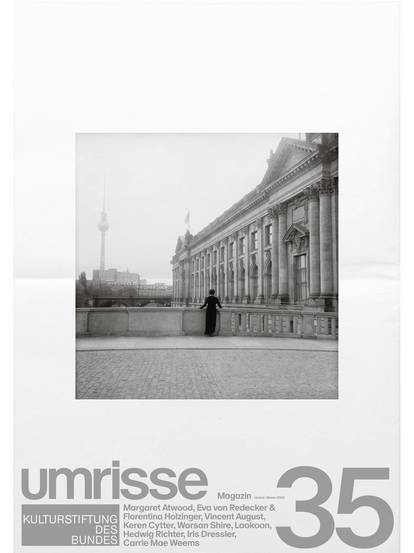
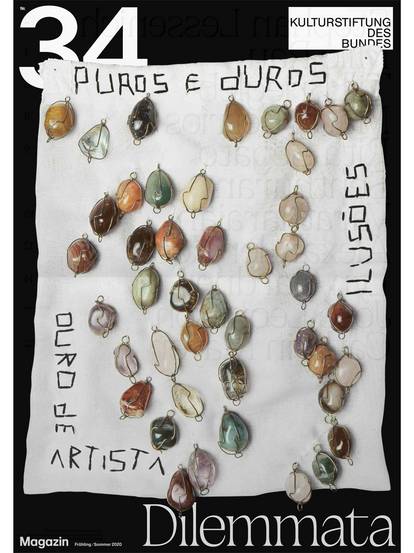
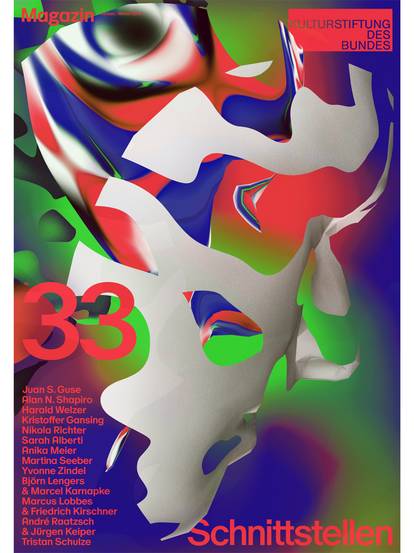
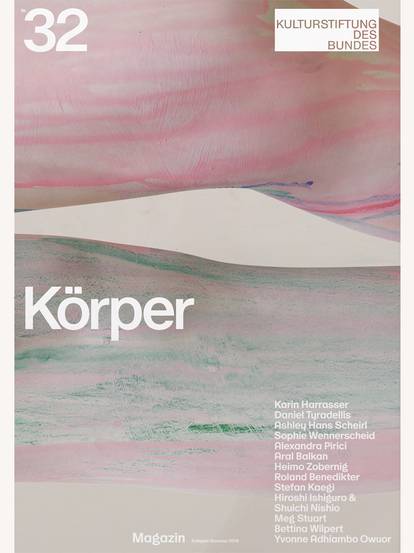
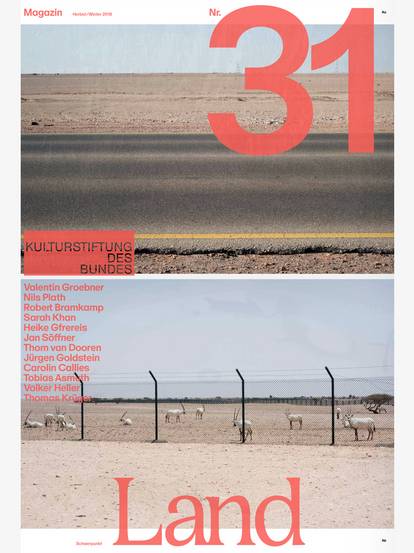
![[Translate to English:] Magazine 30](/fileadmin/_processed_/c/b/csm_magazin30_vorschau_9005f773d3.jpg)
